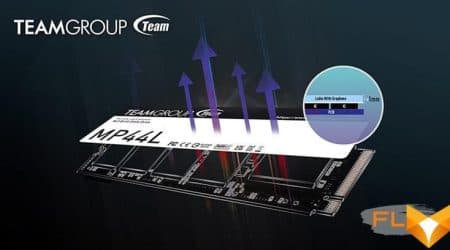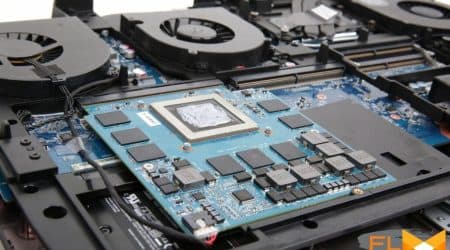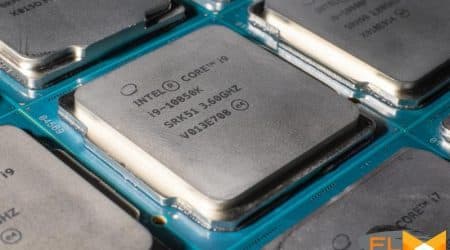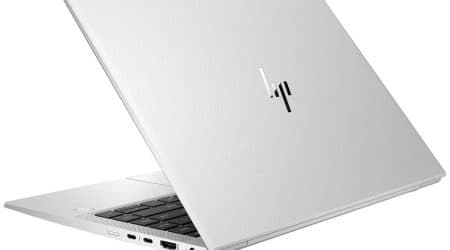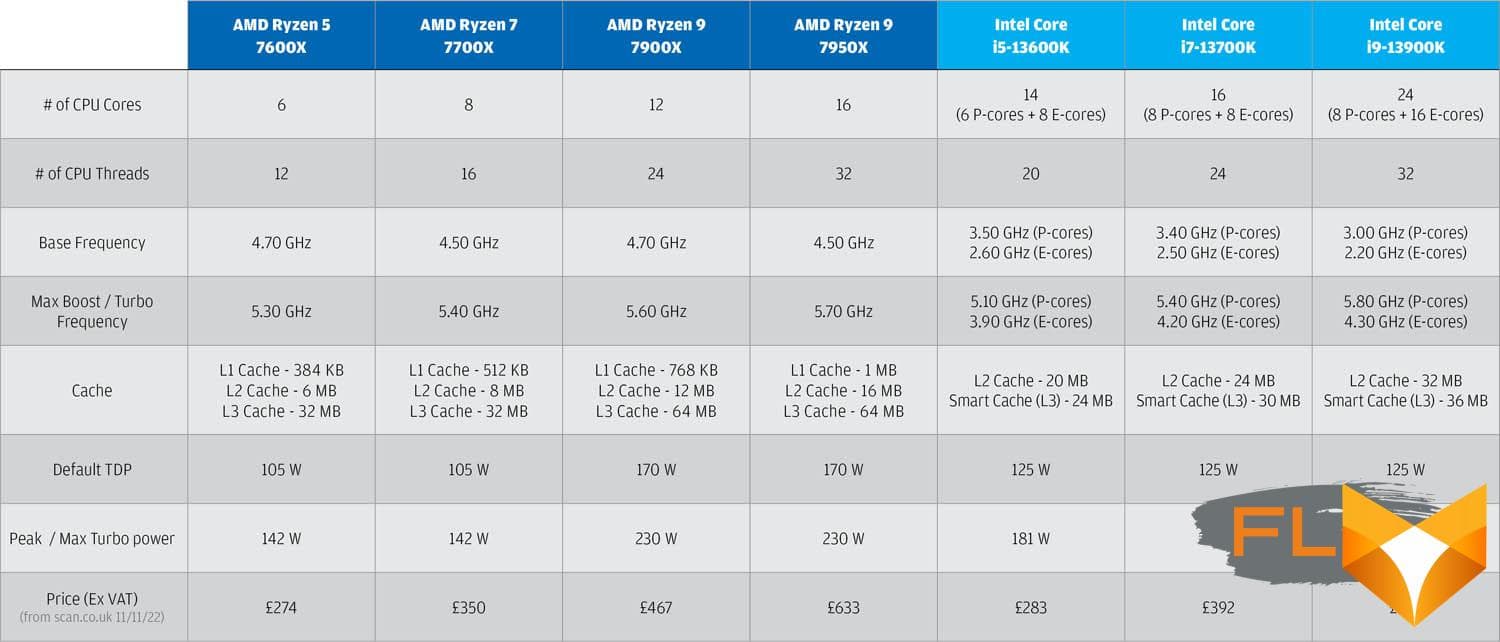


intel core 13th Gen vs amd ryzen 7000 series – Intel 13th Gen Cpu Raptor Lake
The competition between Intel and AMD in the world of processors has always been fierce, and it looks like things are about to heat up even more. With Intel’s 13th generation processors on the horizon and AMD’s highly anticipated Ryzen 7000 series in the works, tech enthusiasts are eagerly awaiting the next chapter in this ongoing battle.
Intel’s 13th gen processors, codenamed “Alder Lake,” are expected to bring some major advancements to the table. With a hybrid architecture that combines high-performance cores with energy-efficient cores, these processors promise to deliver a powerful and efficient computing experience for both gaming and productivity tasks.
On the other hand, AMD’s Ryzen 7000 series, codenamed “Granite Ridge,” is rumored to feature an enhanced Zen 4 architecture. With improved performance and efficiency, these processors aim to further solidify AMD’s position as a leading contender in the market.
When it comes to gaming, both Intel and AMD have their strengths. Intel processors have traditionally excelled in single-threaded performance, making them the preferred choice for gamers looking to maximize their gaming experience. However, AMD’s Ryzen processors have made significant strides in recent years, offering competitive gaming performance at a more affordable price point.
In terms of multitasking and productivity, Intel’s 13th gen processors are expected to shine. With their hybrid architecture and advanced multithreading capabilities, these processors are poised to deliver impressive performance for demanding tasks such as video editing, 3D rendering, and data analysis. However, AMD’s Ryzen processors have also proven to be formidable contenders in this arena, offering excellent multitasking capabilities at a lower cost.
Ultimately, the choice between Intel’s 13th gen processors and AMD’s Ryzen 7000 series will come down to individual needs and preferences. Both options offer exciting advancements and impressive performance, making it an exciting time for consumers and tech enthusiasts alike. Whether you’re a gamer, a content creator, or a professional seeking top-notch performance, the next generation of processors from Intel and AMD has something to offer.
Overview of Intel 13th gen processors
Intel’s 13th generation processors are highly anticipated, boasting significant improvements over their predecessors. These new processors are based on Intel’s Cypress Cove architecture and offer enhanced performance, increased cores, and improved power efficiency.
One of the key upgrades in the 13th gen processors is the move to a more advanced manufacturing process, specifically 10nm SuperFin technology. This allows for higher transistor density and improved power efficiency, resulting in faster speeds and better overall performance.
Additionally, the 13th gen processors feature an increased core count, with options ranging from 6 to 16 cores. This enables better multi-threading capabilities, making them ideal for tasks that require high processing power, such as gaming, video editing, and content creation.
Intel has also made improvements to the Integrated Graphics Processing Unit (iGPU) in the 13th gen processors. These processors feature the latest Intel Xe Graphics architecture, delivering better graphics performance for gaming and other graphics-intensive applications.
Furthermore, the 13th gen processors incorporate advanced AI capabilities, thanks to Intel’s Deep Learning Boost technology. This allows for faster and more efficient AI processing, enabling enhanced features such as face recognition, voice assistants, and real-time translation.
In terms of connectivity, the 13th gen processors offer support for Thunderbolt 4, USB 4, and PCIe Gen 4. This allows for faster data transfer speeds and more bandwidth for peripherals, making them compatible with the latest technologies.
Overall, the 13th gen processors from Intel mark a significant step forward in terms of performance, power efficiency, and AI capabilities. These processors are highly versatile and suitable for various use cases, from gaming to professional workloads.
Overview of Amd Ryzen 7000 processors
Ryzen 7000 processors, the highly anticipated next generation of AMD’s flagship CPU lineup, offer a range of powerful options for both mainstream and high-end users. Building upon the success of the previous Ryzen generations, the Ryzen 7000 series brings even more performance improvements and advanced features.
With the Ryzen 7000 series, AMD continues to deliver on its commitment to providing high-performance processors at competitive prices. These processors are expected to feature significant advancements in performance, power efficiency, and core architecture.
One of the standout features of the Ryzen 7000 processors is the use of a highly efficient Zen 4 architecture. This new architecture is expected to deliver increased instructions per clock (IPC) performance, offering higher single-threaded and multi-threaded performance compared to previous generations.
In addition to the architectural improvements, Ryzen 7000 processors are expected to use the latest manufacturing processes, such as 5nm technology. This will enable them to deliver better power efficiency and improved overclocking potential.
The Ryzen 7000 series will likely offer a wide range of options to meet different user requirements. From desktop processors designed for gaming and content creation to high-performance mobile processors for laptops and ultrabooks, AMD is expected to cater to various market segments.
Furthermore, Ryzen 7000 processors are rumored to support the latest generation of technologies, including PCIe 5.0 for faster data transfer speeds and DDR5 memory for improved system performance.
In conclusion, the Ryzen 7000 processors promise to be a significant upgrade over the previous generation, offering improved performance, power efficiency, and advanced features. With their competitive pricing and range of options, they are likely to be a popular choice among both mainstream and high-end users.
Performance comparison
When it comes to performance, both the Intel 13th gen processors and the Ryzen 7000 series are powerhouses in their own right. However, there are a few key differences that set them apart.
Single-threaded performance
Intel’s 13th gen processors are known for their impressive single-threaded performance. Thanks to their advanced architecture and high clock speeds, these processors excel in tasks that require fast single-core performance, such as gaming or certain productivity applications.
Ryzen 7000, on the other hand, focuses more on multi-threaded performance. Though it still offers strong single-threaded performance, its true strength lies in its ability to handle highly parallel workloads, making it ideal for content creation or tasks that benefit from multiple cores.
Power efficiency
When it comes to power efficiency, Ryzen 7000 holds the advantage. Thanks to their architecture advancements and TSMC’s 5nm manufacturing process, these processors offer higher performance per watt compared to Intel’s 13th gen processors. This means better energy efficiency and lower power consumption, which is crucial for laptops and other mobile devices.
However, it’s important to note that Intel has made significant improvements in power efficiency with their 13th gen processors, narrowing the gap between the two competitors. While they may not be as power-efficient as Ryzen 7000, they still offer respectable performance while maintaining decent energy efficiency.
In conclusion, both Intel’s 13th gen processors and Ryzen 7000 series offer impressive performance, but they excel in different areas. If you prioritize single-threaded performance and need the fastest cores for gaming or certain applications, Intel may be the better choice. On the other hand, if you prioritize multi-threaded performance and power efficiency, Ryzen 7000 may be the more suitable option.
Price comparison
Intel 13th gen vs Ryzen 7000: A Comprehensive Comparison
When it comes to making a decision between Intel 13th gen and Ryzen 7000 processors, one of the major factors to consider is the price. Both Intel and AMD offer a range of processor options at different price points, so it’s important to compare the prices and see which one fits your budget.
Intel processors have traditionally been more expensive than their AMD counterparts, but the gap has been narrowing in recent years. With the launch of the 13th gen Intel processors, Intel has made an effort to be more competitive in terms of pricing.
On the other hand, AMD’s Ryzen processors have gained a reputation for offering great performance at a more affordable price. The upcoming Ryzen 7000 series is expected to continue this trend and offer even better value for money.
Intel 13th gen price range:
1. Intel Core i3 – starting from $XXX
2. Intel Core i5 – starting from $XXX
3. Intel Core i7 – starting from $XXX
4. Intel Core i9 – starting from $XXX
Ryzen 7000 price range:
1. Ryzen 5 – starting from $XXX
2. Ryzen 7 – starting from $XXX
3. Ryzen 9 – starting from $XXX
4. Ryzen Threadripper – starting from $XXX
It’s important to note that these prices are just estimations and can vary depending on the specific model and retailer. It’s always a good idea to check the latest prices and offers before making a purchase.
Conclusion:
When it comes to price, both Intel 13th gen and Ryzen 7000 processors offer a range of options to fit different budgets. Intel has become more competitive in terms of pricing with their latest generation, while AMD continues to offer great value for money with their Ryzen processors. Ultimately, the best choice will depend on your specific needs and budget.
Power efficiency
When comparing Intel’s 13th gen processors with AMD’s Ryzen 7000 series, power efficiency is an important factor to consider. Power efficiency refers to the amount of power consumed by a processor to perform a certain task. A more power-efficient processor consumes less power, resulting in lower energy consumption and better performance per watt.
Both Intel’s 13th gen processors and AMD’s Ryzen 7000 series are expected to bring significant improvements in power efficiency compared to their predecessors. Intel is introducing its enhanced 10nm SuperFIN architecture, which promises better performance and power efficiency. AMD, on the other hand, is rumored to be using a more advanced 5nm Zen 4 architecture, which should also deliver improved power efficiency.
Intel’s power efficiency advancements
Intel has been working on improving power efficiency in their processors for several generations. With their 13th gen processors, Intel aims to continue this trend. The enhanced 10nm SuperFIN architecture is expected to provide better power management capabilities, allowing the processor to dynamically adjust its power consumption based on workload demands.
Intel’s 13th gen processors may also feature improved power gating techniques, which help reduce power leakage when parts of the processor are idle. Power gating allows unused sections of the processor to be turned off, reducing power consumption and heat generation.
AMD’s power efficiency advancements
AMD has been known for its power-efficient processors with their previous Ryzen generations. With the Ryzen 7000 series, AMD is expected to raise the bar even higher. The rumored 5nm Zen 4 architecture is expected to deliver significant improvements in power efficiency.
In addition to the architectural improvements, AMD may also utilize advanced power management techniques to further enhance efficiency. These techniques could include better power gating, voltage scaling, and dynamic frequency adjustment to ensure optimal performance with minimal power consumption.
Overall, both Intel’s 13th gen processors and AMD’s Ryzen 7000 series are expected to bring substantial improvements in power efficiency. The specific details and performance numbers will only be known when these processors are officially released and benchmarked. It will be interesting to see how these advancements translate into real-world performance and energy savings for users.
Gaming performance amd ryzen 7000 series vs vs intel 13th gen
When it comes to gaming performance, both Intel 13th gen and Ryzen 7000 processors offer significant improvements over their predecessors.
Intel 13th gen processors, with their advanced architecture and higher clock speeds, deliver excellent gaming performance. They are capable of running the latest games at high settings and resolutions without any issues. The increased core count and improved IPC (Instructions Per Clock) ensure smooth gaming performance and faster frame rates. Whether you are into competitive multiplayer games or immersive single-player experiences, Intel 13th gen processors will provide an exceptional gaming experience.
Ryzen 7000 processors, on the other hand, offer a compelling gaming performance as well. With their Zen 4 architecture and impressive multi-threading capabilities, Ryzen 7000 CPUs excel in multitasking scenarios. While they may not match Intel 13th gen processors in terms of single-threaded performance, they make up for it with their excellent scalability and overall value. Ryzen 7000 processors are an ideal choice for gamers who also use their systems for content creation, streaming, and other demanding tasks.
When comparing gaming performance between Intel 13th gen and Ryzen 7000 processors, it is essential to consider the specific requirements of your gaming setup and the titles you play. Both processors offer great gaming performance, but their strengths lie in different areas. Intel 13th gen processors are better suited for gamers who prioritize single-threaded performance and want the best possible frame rates. On the other hand, Ryzen 7000 processors are an excellent choice for gamers who value multi-core performance and versatility.
Ultimately, whether you choose Intel 13th gen or Ryzen 7000 largely depends on your individual needs and budget. Both processor families offer excellent gaming performance and are backed by reputable manufacturers. It’s recommended to consider factors like price, platform compatibility, and specific requirements before making a decision.
Compatibility and features 13th gen intel core vs amd ryzen 7000 cpu
When it comes to compatibility and features, both Intel 13th gen and Ryzen 7000 processors offer impressive options.
Intel 13th gen compatibility
The Intel 13th gen processors are compatible with the latest motherboards using the Intel Alder Lake platform. These processors utilize the LGA1700 socket, which is different from the previous generations requiring a motherboard upgrade. Additionally, they support DDR5 memory, offering higher bandwidth and lower power consumption compared to DDR4.
Intel also introduces new technologies to enhance the overall performance and efficiency of their processors. Some notable features include Intel Thread Director, which optimizes task scheduling for better multi-threading performance, and Intel Iris Xe Graphics, delivering improved integrated graphics performance.
Ryzen 7000 compatibility
On the other hand, Ryzen 7000 processors are designed for compatibility with existing AM4 motherboards. This means that if you already have a compatible motherboard, you can potentially upgrade to the Ryzen 7000 series without changing your motherboard. However, it’s important to note that you might need to update your BIOS to ensure compatibility.
Ryzen 7000 processors also support DDR5 memory, providing faster data transfer rates and improved power efficiency. Additionally, they feature technologies like Precision Boost and Precision Boost Overdrive for enhanced performance and overclocking capabilities.
| Compatibility | Intel 13th gen | Ryzen 7000 |
|---|---|---|
| Motherboard | Requires Intel Alder Lake platform with LGA1700 socket | Compatible with existing AM4 motherboards with potential BIOS update |
| Memory | Supports DDR5 memory | Supports DDR5 memory |
In terms of compatibility and features, both Intel 13th gen and Ryzen 7000 processors offer advanced technology and performance optimizations. The choice between the two will largely depend on your specific needs and motherboard compatibility.
FAQ: Intel 13th gen vs ryzen 7000
What are the key features of the AMD Ryzen 9 7950X processor?
The AMD Ryzen 9 7950X processor offers high-performance computing with multiple cores and threads, ideal for demanding tasks such as gaming, content creation, and multitasking.
How does the Ryzen 9 7950X compare to the Intel Core i9-13900K in terms of performance?
The Ryzen 9 7950X and Core i9-13900K are both high-end processors offering exceptional performance, but benchmarks and real-world tests can provide insights into their relative strengths in different use cases.
Is the AMD Ryzen 7 7700X a suitable alternative to the Ryzen 9 7950X for gaming?
The AMD Ryzen 7 7700X offers excellent gaming performance at a lower price point compared to the Ryzen 9 7950X, making it a compelling option for gamers seeking a balance between performance and value.
What are the differences between the Ryzen 5 7600X and Ryzen 7 7700X processors?
The Ryzen 5 7600X and Ryzen 7 7700X processors differ in core count, thread count, and clock speeds, with the Ryzen 7 offering higher performance capabilities for multitasking and demanding applications.
Can the AMD Ryzen 9 7950X handle intensive graphical workloads without a dedicated GPU?
While the Ryzen 9 7950X features integrated graphics, it may not provide sufficient performance for demanding graphical workloads, making a dedicated GPU such as an NVIDIA RTX series card necessary for optimal performance.
How does the performance of the AMD Ryzen 9 7950X compare to the Ryzen 5 7600X in multi-threaded tasks?
The AMD Ryzen 9 7950X significantly outperforms the Ryzen 5 7600X in multi-threaded tasks due to its higher core and thread count, making it better suited for tasks like video editing, rendering, and content creation.
How does the power draw of the AMD Ryzen 7000 series processors compare to previous Ryzen 5000 series chips?
The power draw of the new AMD Ryzen 7000 series processors is expected to be optimized for improved efficiency compared to the Ryzen 5000 series chips, potentially offering better performance-per-watt.
What are the key differences between the AMD Ryzen 7000 series processors and the 12th gen Intel Core CPUs?
The AMD Ryzen 7000 series processors and Intel’s 12th gen Core CPUs differ in architecture, manufacturing process, and performance characteristics, with each offering unique advantages and capabilities.
Is the Ryzen 7950X expected to be faster than the Ryzen 5000 series processors from AMD?
Yes, the Ryzen 7950X is anticipated to offer improved performance compared to the Ryzen 5000 series processors, leveraging advancements in architecture and technology.
How do the new Ryzen 7000 series chips from AMD compare to the latest 13th gen Intel Core CPUs in terms of single-core performance?
The Ryzen 7000 series chips from AMD are expected to compete closely with the single-core performance of the 13th gen Intel Core CPUs, with both companies aiming to deliver significant improvements in this aspect.
Has AMD launched any new laptop CPUs as part of the Ryzen 7000 series?
Yes, AMD has launched new laptop CPUs as part of the Ryzen 7000 series, offering improved performance, efficiency, and features for portable computing devices.
Are the Ryzen 7000 series processors from AMD expected to offer turbo power capabilities like their predecessors?
Yes, the Ryzen 7000 series processors are likely to feature turbo power capabilities, dynamically adjusting clock speeds to maximize performance when needed.
What type of memory is compatible with the new Ryzen 7000 series processors?
The new Ryzen 7000 series processors are expected to support DDR4 memory, offering compatibility with existing memory modules and potentially offering improved memory performance across the board.
How does Intel’s 7nm process node compare to AMD’s manufacturing process for the Ryzen 7000 series?
Intel’s 7nm process node is anticipated to offer competitive performance and efficiency compared to AMD’s manufacturing process for the Ryzen 7000 series, marking a significant advancement for the company.
Which Ryzen CPU model, such as the Ryzen 7 5800X3D or Ryzen 7700X, is generating the most buzz among enthusiasts?
Both the Ryzen 7 5800X3D and Ryzen 7700X are generating excitement among enthusiasts, as they represent the flagship models within the new Ryzen 7000 series lineup from AMD.
Can we expect fierce competition between Intel and AMD with the launch of their respective new CPU lineups?
Yes, with the launch of new CPU lineups from both Intel and AMD, competition between the two companies is expected to intensify, benefiting consumers with a wider range of options and potential advancements in performance and technology.
